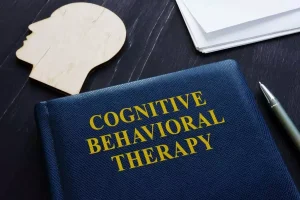
In fact, most blood-thinning medications will specifically advise against mixing them with alcohol. Blood thinners can be dangerous, increasing your risk of severe bleeding during an accident or with an injury. Their use must be carefully monitored to ensure that the blood does not become too thin. People taking blood thinners with reduced liver function may accumulate more medication in their bloodstream. Increasing the level of blood thinners in the body can lead to an increased risk of bleeding. Doctors warn people who are taking Aggrenox to moderate their alcohol consumption.
Talking to Your Healthcare Provider
However, if you drink a lot in a short period (i.e. bring drinking), you can exacerbate the effects of Elquis and increase the risk of bleeding. A 2013 study of almost 60,000 people found no difference in the risk of blood clots between wine or beer drinkers. Alcohol, in low to moderate amounts, thins the blood, potentially reducing the risk of clots. But moderation is key – and is alcohol a blood thinner doctors don’t recommend drinking alcohol to protect against DVT. Several studies have been published that link heart health with red wine, as Mayo Clinic reports that a daily glass of red wine may have certain health benefits.
- If eligible, we will create a treatment plan tailored to your specific needs.
- Alcohol can thin the blood for several hours after consumption, with effects varying based on individual metabolism, alcohol quantity and other factors.
- If you know you’re vulnerable to alcohol misuse, try not to put yourself in an environment that will encourage excessive intake.
- The lifesaving benefits of these drugs often outweigh the potential dangers.
- Alcohol is metabolized by the liver, and excessive intake can lead to a buildup of toxic substances, resulting in conditions such as liver disease and cirrhosis.
- A more neutral effect was found with stroke deaths and non-fatal strokes.
Is it safe?
Research indicates that women may have a higher mortality risk from ALD compared to men, highlighting the importance of early detection and intervention. Females retain more alcohol in the bloodstream than males, so they are at higher risk of developing problems from combining alcohol with medications. Your doctor will test you with an international normalized ratio (INR) test. If you take an anticoagulant like warfarin, you’ll need regular blood tests so your doctor can adjust your levels if needed. Ask them about other steps you should take to stay safe while you’re on this medication.

Avoiding injury
Delve into the significant variances between paroxysmal atrial fibrillation (AFib) and persistent AFib, considering their implications on cardiac health. Understand the diverse management strategies for each type of AFib and how this knowledge plays a crucial role in determining the most effective treatment approaches for individuals with these conditions. Excessive long-term alcohol intake can contribute to blood clot formation by increasing platelet levels and activation, leading to a higher likelihood of clotting. Ultimately, anyone who is taking any kind of blood-thinning medication should speak with their doctor before mixing it with alcohol.
- Some may need to limit their intake more severely or abstain altogether, depending on their medical history and treatment plan.
- For example, if a blood clot forms and limits the flow of blood in the arteries, doctors call this thrombosis.
- Explore effective methods to manage atrial fibrillation (AFib) post-ablation procedure.
- Seeking professional help for alcohol misuse is an essential step in maintaining your health, especially if you’re taking medications like Eliquis.
- Medical staff can also help resuscitate anyone who’s experienced extreme blood loss.
Ask the Expert: Common Questions About Alcohol and Blood Thinners

If you’re already pregnant, double-check with your doctor to make sure the blood thinner you’re on won’t harm the baby. If you get a dangerous bleeding problem while taking warfarin, doctors can turn to an “antidote” of vitamin K or a combination of prothrombin complex concentrate (PCC) and fresh frozen plasma to stop it. Some procedures can raise your risk of getting a blood clot where your new valve was placed.

- They’ll also help you learn how to minimize the risks of taking a blood thinner so you can reap the rewards without worry.
- But moderation is key – and doctors don’t recommend drinking alcohol to protect against DVT.
- The relationship between alcohol and AFib is particularly concerning as alcohol can act as a trigger for AFib episodes.
- Coumadin is one of the most commonly used blood thinners in the U.S., but it carries a 3% to 6% risk of major bleeding.
- Call your doctor if you can’t eat for several days, or you’re vomiting or you get diarrhea that lasts more than a day.
So staying well-hydrated improves circulation, according to the American Heart Association. Some drugs should be avoided unless there is a clear reason for taking them like clopidogrel, ticagrelor, or prasugrel, which help reduce the risk of stroke. Other drugs, such as amiodarone, which controls heart rhythm, double in potency when the patient is also taking warafin. Granger warns against taking aspirin and nonsteroidal drugs like naproxen and ibuprofen that can increase your risk of bleeding. The good news is that blood-thinning medications can stop clots from forming, slow their growth, or prevent clots that have already formed from wreaking havoc in other parts of the body. In addition, some direct-acting oral anticoagulants are broken down in the liver for excretion.
Excessive alcohol consumption, especially binge drinking, can exacerbate these effects due to the synergistic impact it has when combined with anticoagulants. This can lead to dangerous situations such as bleeding in the brain, which can trigger strokes or heart attacks. Additionally, alcohol can damage blood vessel linings, increasing the likelihood of clot formation and subsequent cardiovascular events. Sometimes, however, a blood clot can appear in an artery that supplies your heart or brain with oxygen-rich blood. When a clot blocks blood flow to your heart, it can cause a heart attack.
They may refer to them as blood thinners, anticoagulants, or antiplatelet drugs. A doctor may prescribe these medications to reduce a person’s risk of heart attack and stroke. Given these potential risks, it is crucial for individuals on blood thinners to moderate their alcohol intake and consult with their healthcare provider for personalized advice. The National Institutes of Health also highlights the importance of understanding alcohol-medication interactions to prevent adverse health effects. Combining alcohol with blood thinners can lead to serious health risks and side effects. Alcohol has the potential to alter the efficacy of blood-thinning medications, which can result in either excessive thinning of the blood or reduced effectiveness of the medication.
Long-Term Cardiovascular Health Concerns of Alcohol
You may also be given anticoagulants before or after surgery when you may be immobile for a while. Aspirin can increase the toxicity of alcohol so you might get drunk more quickly, and thus develop alcohol poisoning more easily. The relationship between alcohol and deep vein thrombosis may depend on what, and how much, you pour in your glass.



